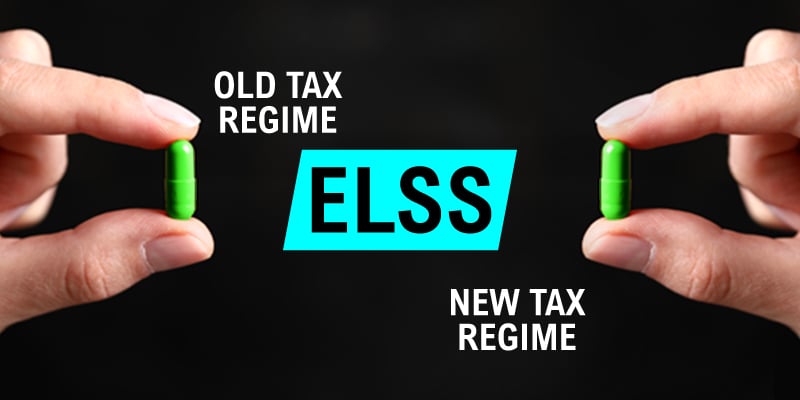‘I’ to ‘I’: A different route with surprising benefits!
There was an argument about which route to take for our 10km run last Wednesday morning. I preferred the one with fewer turns and less traffic, my husband wanted to stick to our regular stretch, which has now become rather chaotic thanks to all the construction work being carried out. After some back and forth, we managed to settle on a considered route with both our preferences, yet one which was different from our usual run.
My husband and I have been running regularly for a few years now and recognize our ability around how much to push ourselves and what we want to achieve from this routine.
Investing in international markets once you have a well-set investment portfolio is like choosing a slightly different running route which can also give you a satisfying high (in this case, potential long-term wealth creation). This is not about experimenting with new ways to invest but adding a different (International) flavor to your Indian investments. It must be a well-thought-through decision, which ideally should happen at a time in your life when you are certain of your life goals and the level of risk you are comfortable taking.
What is the benefit of investing internationally?
Let’s be clear that stocks are not the only way to invest overseas.
I recall a time nearly 15 years ago, when investing in real estate in London was being talked of as the big investment innovation, thanks to the relatively higher rental yields (Often defined as the rate of returns of the rent earned from an investment property, calculated as a percentage of the property value received over a year through rental earnings). A senior executive in one of the largest real estate consulting companies in India, around the same time, also spoke about investing in Sri Lankan real estate, where apparently the Chinese were already present.
A decade and a half later, global equity assets seem to have replaced international real estate in their appeal. People are recognizing that equity investing is simpler, easier to own and track, and more much convenient than buying real estate. Plus, you can get exposure to any industry of your choice and choose to invest in small amounts through regular automated transactions too.
Think of international diversification in equity investing as adding variety to your fitness routine. Research has shown that diversifying your workout to include endurance, balance, strength, and flexibility is beneficial and better than sticking to just one standard exercise regimen. Such a package not only keeps your mind and body healthy but also prevents injuries and helps you maintain some excitement in your routine.
Similarly, diversifying your investments overseas can give you a range of benefits. You could…
- Invest in innovative businesses not available in the Indian market and in ‘big brands’ that we use and consume daily
- Access themes that are leading global change, and are exciting, new-age investment opportunities
- Benefit from diversifying risk: If Indian markets underperform, you can potentially gain from an exposure to global markets or at least not get affected as much as you would have, had you not diversified (the correlation between the Indian and international equity markets is usually low)
- Earn potentially better risk-adjusted returns by investing internationally in addition to domestic exposures
- Get the benefit of reduced currency risk
Don’t all these reasons make you want to get rid of your home bias (your inclination to invest only in domestic markets)? Isn’t it worthwhile to consider changing your route just that little bit?
Ok, so you’re sold on international investing. What are your options?
Thanks to innovative technology, investing overseas is now simple, and for a large part, it has been digitized as well.
Broadly, you can invest overseas:
- By taking advantage of the Liberalized Remittance Scheme (LRS) and using that money to invest abroad or
- Through the domestic mutual funds route which helps you invest in overseas stocks (through the fund of funds route) or via Exchange Traded Funds (Portfolios which mirror an index, buying stocks in the same proportion. Listed on exchanges, they can be bought & sold like regular equities).
Let’s understand this a little better. The Liberalised Remittance Scheme (LRS) of the Reserve Bank of India (RBI) allows individuals to send or use money overseas. This could be for expenditure or for investments. When you travel abroad on vacation, the currency you carry to be spent there is also considered under the LRS quota. The quota means that there is an annual limit (of up to $250,000) for the amount of money you can convert to foreign currency in a financial year.
LRS is a good way to invest abroad if you know what you’re doing. There are several ways to do so:
Direct investments: You can do your own research and buy individual stocks and ETFs, even invest in index funds or active funds overseas by opening an account with an overseas broker. You pick the market you want to invest in and invest directly. Keep in mind, costs may not be standardized and organizing the paperwork will require time.
Via domestic brokers: Large broking companies in India now have tie-ups with overseas brokers and offer their resident Indian clients an easier way to buy and sell stocks or ETFs overseas. It’s simpler because the domestic broker will already have all your details and the Know Your Customer (KYC) formalities completed. Account opening formalities will be taken care of by the domestic broker. There will be costs involved, plus broking charges for any trades that are made.
Online platforms: There are several new-age platforms accessible via mobile apps or web portals, run by Registered Investment Advisors (RIAs), that offer convenient access to investments in global stock markets. As RIAs, they may either be broker-dealers themselves, or they may associate with several broker-dealers, selling a range of products and services. That’s how they are able to facilitate cross-border investments. An advantage of such services is that they may offer low or zero-commission investments, and permit partial entry in stocks - purchase less than 1 share. Investment and advisory costs are, however, not standardized, and you may need to read the fine print before starting out. Plus, some of these are new enterprises and you’ll have to do the background checks yourself.
Local wealth advisor or private bank: For high-net-worth investors, their domestic wealth manager or private bank could come up with overseas investment options. These solutions are usually investments in select stock opportunities or funds and are customized for their exclusive clientele. It’s worth checking on costs which may not always be transparent. There are also new-age online advisory platforms that offer their clients a curated basket of funds and ETFs from overseas markets.
The LRS route works well especially when you are investing larger sums of money and have someone to assist with the documentation, since the process can otherwise seem cumbersome. You should also be aware of taxation norms. Capital gains get taxed at 30% if you redeem before 24 months and at 20% (with indexation on gains) if you sell after 24 months.
Complicated? Hence, Mutual Funds!
If all the above info sounds complicated and you are not ready to undergo the processes required to invest via LRS, the alternative is quite simple- Domestic Mutual Funds that in turn invest abroad.
Sometimes, if it is too hot outside or the air quality is poor or we are simply feeling lazy, instead of hitting the road for a run, we just head to the gymnasium and run on the treadmill. It’s not as exhilarating, but I feel it’s an efficient proxy to running outdoors. And it is definitely better than giving up and not running at all!
In India, there are many different mutual fund schemes offered by multiple AMCs which can give you access to global stocks and ETFs. Several different markets and themes get covered in this basket; you may choose to invest in a fund which in turn invests only in global energy companies or one which invests only in technology companies. Or you may want to get a broad index exposure to S&P 500 in the US or go for investments in Chinese companies.
In case of rupee investments through domestic mutual fund schemes investing overseas, capital gains are taxed at the income tax rate applicable to you if you held your investment for less than three years and 20% (post indexation) if held for more than three years. There is also an annual cost embedded in the investment (reflected in the Total Expense Ratio) which can go up to 2.5% a year.
The bottom-line: What should your approach be?
Given the plethora of choices, the need of the hour is to be mindful rather than jumping into every overseas investment solution. Other than selecting a suitable geography and fund to invest in, check for costs. If you are going direct via stocks, there are brokerage costs and margin money requirements to keep in mind. Trading account charges, bank charges, depository charges, and any kind of additional tax, tax deducted at source are all aspects you need to be aware and mindful of if choosing to invest via the LRS route. It all adds up!
Also, there will be risks that you are not used to and a new kind of uncertainty which comes with investing in newer markets.
Half-way through that different running route on Wednesday morning, I realized we had to run uphill for about a kilometer, which threw me off a little bit. I wasn’t prepared and it troubled me that my average run pace would fall because of the slower uphill running. At the time, instead of turning around and avoiding the situation, I forged ahead and trusted the choice we made. And I must admit, I eventually did enjoy the change and appreciated the other (unknown) side too!
In down cycles, investing in less familiar markets will feel like it’s a risk you should avoid. But instead of jumping ship, revisit the reasons for your choice, check if you’re remaining true to your risk profile and ensure that you stay on track for the right reasons.
Long distance running may not suit everyone and if you do decide to try it out, it’s inadvisable to go for a 10-15 km as the first run. Start small if you’re going for something new.
Similarly, international investing comes with unknowns which not everyone may uncover easily. So don’t think of it as the first investment choice if you’re just starting out. Experts recommend that international investments should be added to a mature, well-diversified portfolio where exposure to domestic equities and bonds is already significant, there is a desire to diversify and do something different in the quest for more balanced risk-adjusted returns, and there is a suitable risk-appetite to absorb jitters from global markets too.
Think through your choices, weigh the benefits, risks, costs and conveniences, then arrive at the mode of investment that suits you the best. And do consider diversifying across the different options available for investing in international equities.
As for my Wednesday morning run, believe it or not, the change in route paid off. Despite the uphill drag, I managed to finish my 10 km run at a pace faster than the previous days’ 10km run.
While I’m still trying to figure out where that extra energy came from, I’m glad I trusted the process and stayed the course.
Amended as on Apr 1, 2023: Please note that as per amendments in Finance Bill 2023, from April 1, 2023, profits made on investments in debt mutual funds are now taxed as short-term capital gains if these funds invest <=35% in equities. This means debt mutual funds are now taxed as per the income tax rates as per an individual’s income.
Also note that with effect from Apr 1, 2020, Dividend Distribution Tax (DDT) was abolished, and mutual fund dividends were made taxable in the hands of investors. Dividend income is now considered as ‘income from other sources and investors need to pay tax on it as per their individual tax slabs.
This video was originally created at a time when tax rules were different. Please treat this note as the latest updated tax information.
About the author
Lisa Pallavi Barbora - Lisa is a personal finance expert with 18+ years of experience spanning wealth management, asset management and as a writer & educator. She shares her thoughts on her personal finance portal www.moneypuzzle.in, directed towards young earners who want to understand the ‘why’ of their daily financial decisions. Lisa also writes extensively for digital media & personal finance outfits, has moderated finance-related panels & been invited as a speaker not just for financial subjects but also as a writer.Disclaimer
This note is for information purposes only. In this material DSP Asset Managers Pvt Ltd (the AMC) has used information that is publicly available and is believed to be from reliable sources. While utmost care has been exercised, the author or the AMC does not warrant the completeness or accuracy of the information and disclaims all liabilities, losses and damages arising out of the use of this information. Readers, before acting on any information herein should make their own investigation & seek appropriate professional advice. Any sector(s)/ stock(s)/ issuer(s) mentioned do not constitute any recommendation and the AMC may or may not have any future position in these. All opinions/ figures/ charts/ graphs are as on date of publishing (or as at mentioned date) and are subject to change without notice. Any logos used may be trademarks™ or registered® trademarks of their respective holders, our usage does not imply any affiliation with or endorsement by them.







Leave a comment